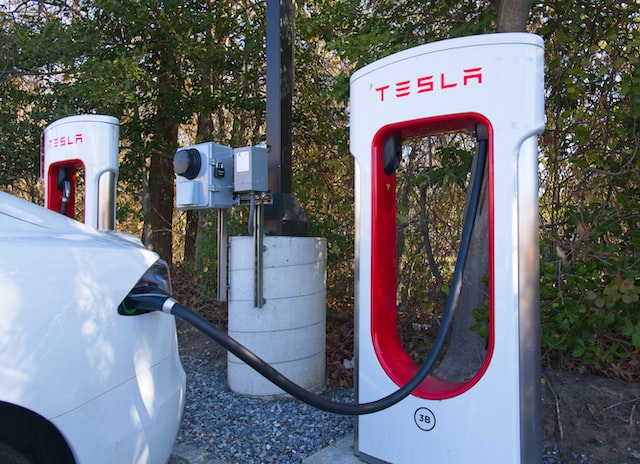Australian motorists cannot lawfully be taxed by states for driving electric and hybrid vehicles.
The High Court on Wednesday ruled on a case involving Victoria’s road user tax on low-emission vehicles, launched by two electric vehicle drivers in 2021.
The court found the Victorian government could not charge electric, hydrogen and plug-in hybrid vehicle owners – known as Zero and Low-Emission Vehicles (ZLEVs) – a fee for each kilometre they travel.
Rather the road user charge is a duty of excise that can only be imposed by the federal government.
“The ZLEV charge is, as its name suggests, a tax on ZLEVs. For that reason, it is a duty of excise,” the court found in a split decision.
The outcome is expected to affect more than just Victorian drivers as attorneys-general for all states and territories intervened to argue for the right to tax road users and two states have announced plans to do so in 2027.
Victorian drivers Chris Vanderstock and Kath Davies launched the lawsuit shortly after the state government introduced its ZLEV road user charge.
The law charges electric and hydrogen vehicle owners 2.8 cents for each kilometre they travel during the year and plug-in hybrid vehicle owners 2.3 cents.
Hybrid vehicles are exempt.
Motorists are required to submit photographs of their vehicle odometer to the state government each year and, if they fail to, can be charged for driving 13,500km or have their registration suspended or cancelled.
Lawyers for Mr Vanderstock and Ms Davies argued the road user charge was a consumption tax that replaced the federal fuel excise tax and, according to the constitution, could not be collected by state governments.
Ms Davies said she was thrilled by the judgment.
“Australia is lagging behind the rest of the world on electric vehicle uptake,” she said.
“Now is not the time to be taxing electric vehicles – it’s the time to be doing everything we can to encourage people to make the switch to cleaner cars.”
Equity Generation Lawyers senior associate David Hertzberg said it was a landmark decision.
“Today’s judgment means that Victoria’s electric vehicle tax is invalid. It also sets a precedent which will likely prevent other states from implementing similar legislation.”
A spokesman for federal Treasurer Jim Chalmers said the government would take time to consider the judgment and seek advice.
“We want to work with Victoria and with other states and territories on policy relating to electric vehicles,” the spokesman said.
While Victoria is the only state to charge low-emission vehicle owners so far, NSW and Western Australia have announced plans to introduce similar schemes in July 2027.
The Victorian opposition and Greens have called on the state government to refund money already banked from the tax, which was set to raise $3.9 million this financial year.
While noting the 4-3 split decision, Victorian Treasurer Tim Pallas said he would seek legal advice on whether electric vehicle drivers were entitled to a refund.
“You’d have to say it’s clearly a very contentious matter,” he told reporters at state parliament.
“It was a fair charge. It was a charge that meant that everybody paid their share of the cost to the road network.”
The Motor Trade Association said it was time for a nationally consistent road user charge for all motorists.
Electric vehicles made up eight per cent of all new car sales across Australia in September.
Jennifer Dudley-Nicholson, Paul Osborne and Callum Godde
(Australian Associated Press)





